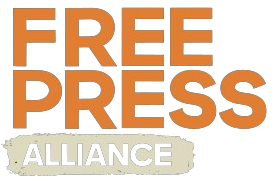Journalists may face unique challenges in protecting their identity, especially when reporting in places with strong media censorship or on topics such as drug trafficking or abuse of power. Moreover, with the increasing prevalence of online threats and the rapid spread of disinformation, maintaining a secure digital presence has become crucial.
This article explores the importance of identity management for journalists, emphasizing key practices such as understanding their digital footprint, using sock puppets, or creating Google alerts.
- Understand your digital footprint: In today’s digital landscape, journalists must be acutely aware of their digital footprint. A thorough knowledge of the information available about them online will help prevent identity theft, targeted attacks, or manipulation of personal data. Journalists should regularly conduct comprehensive audits of their online presence, examining search engine results and profiles on social networks and public records. By identifying and addressing potential vulnerabilities, they will be able to proactively safeguard their identity and maintain trustworthiness.
- Use a sock puppet account: Journalists often take risks when reporting on sensitive topics or investigating powerful individuals or organizations. Using a sock puppet, or fake online identity, can be a valuable tool to protect themselves and their journalistic work. By using a fake online persona, journalists can protect their real identity from potential threats. Sock puppets can be used to engage in discussions, gather information, or participate in online communities without risking personal exposure. However, it is essential to use them responsibly, respecting ethical standards, and avoiding any action that could compromise journalistic integrity.
- Maintain separate social media accounts: Journalists should consider creating separate social media accounts for their personal and professional lives. By separating their online profiles, they can avoid situations such as inadvertently revealing personal details, mixing professional and personal opinions, or exposing themselves to unwanted scrutiny. Separate accounts allow journalists to establish clear boundaries between their public image as a journalist and their private life, safeguarding their professional reputation and credibility.
- Set up Google Alerts: I In an era of rapid information dissemination, journalists need to stay ahead of the narrative surrounding their work and personal lives. By setting up Google Alerts with their names, journalists can receive notifications whenever their names appear online. This allows them to monitor conversations, address any inaccuracies or false narratives quickly, and take control of their online reputation. Google Alerts is a valuable tool for proactive identity management, allowing journalists to shape the narrative about themselves and their work.
- Delete unused accounts: Abandoned online accounts can pose significant risks to journalists. These accounts may contain personal information or outdated content that could be exploited by malicious actors. It is critical that journalists regularly review their online presence and delete accounts they no longer use or platforms in which they are no longer actively participating. By reducing their digital footprint and minimizing potential entry points for cyber threats, journalists can improve their security and protect their identities from unauthorized access.

